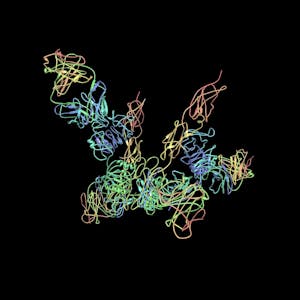Drug Development
The University of California San Diego, Skaggs School of Pharmacy and Pharmaceutical Sciences Drug Development course brings you lectures from both faculty and industry experts. With this course, recorded on campus at UCSD, we seek to share our access to top people in the field who bring an unprecedented range of expertise on drug development. In this course you will learn the different stages of clinical development as well as the regulatory including but not limited to, an …
Drug Development
The University of California San Diego, Skaggs School of Pharmacy and Pharmaceutical Sciences Drug Development course brings you lectures from both faculty and industry experts. With this course, recorded on campus at UCSD, we seek to share our access to top people in the field who bring an unprecedented range of expertise on drug development. In this course you will learn the different stages of clinical development as well as the regulatory including but not limited to, an Investigational New Drug Application (IND), New Drug Application (NDA), and product labeling. Additionally you will learn how to Incorporate study design methods for consideration in the design of clinical protocols to assess safety, tolerability, and efficacy in multiple therapeutic areas.
In this course you will learn the different phases of clinical development:
Phase 1 or early stage clinical trial are conducted primarily to determine how the new drug works in humans, its safety profile and to predict its dosage range. It typically involves between 30 and 100 healthy volunteers.
Phase 2 or Proof of Concept POC studies test for efficacy as well as safety and side effects in a group of between 30 to 200 hundred patients with the disease for which the new drug is being developed.
Phase 3 or late stage clinical development involve much larger group of patients, between a few hundred to thousands, depending on the indication, which will help determine if the new drug can be considered both safe and effective. It will involve control groups using placebo and/or current treatment as a comparison.
Product registration and approval process after a drug is considered safe and effective from Phase 3 trials, it must be authorized in each individual country before it can be marketed. All data generated about the small molecule or biologic is collected and submitted to the regulatory authorities in the US at the FDA, Food and Drug Administration FDA, in Europe the EMA or European Medicines Agency, Japan Ministry of Health and other countries which may require their own national approvals.
This course is intended as part 2 of a series: Drug Discovery (https://www.coursera.org/learn/drug-discovery) , Drug Development and Drug Commercialization (https://www.coursera.org/learn/drug-commercialization) . We would highly recommend that you take the courses in order since it will give you a better understanding on how a drug is discovered in the lab before being tested in clinical trials and then launched in the market place.
None
Syllabus
Syllabus - What you will learn from this course
Week 1
Welcome!
Regulatory Considerations When Filing an Investigational New Drug Application, Susan Trieu, Pharm.D.
Clinical Study & Start-up Activities, Joseph Ma, Pharm.D.
Week 2
Clinical Trials: Phase 1, Yazdi Pithavala, Ph.D.
Clinical Trials: Phase 2, Kourosh Parivar, M.Pharm.
Week 3
Industry Considerations with Phase III Clinical Trials, Katie Lyons, Pharm.D. and Kelly Hogan, Pharm. D.
New Drug Application, Filing, Product Labeling, Kelly Hogan, Pharm.D.
FAQ
When will I have access to the lectures and assignments?
Access to lectures and assignments depends on your type of enrollment. If you take a course in audit mode, you will be able to see most course materials for free. To access graded assignments and to earn a Certificate, you will need to purchase the Certificate experience, during or after your audit. If you don't see the audit option:
The course may not offer an audit option. You can try a Free Trial instead, or apply for Financial Aid.
The course may offer 'Full Course, No Certificate' instead. This option lets you see all course materials, submit required assessments, and get a final grade. This also means that you will not be able to purchase a Certificate experience.
What will I get if I subscribe to this Specialization?
When you enroll in the course, you get access to all of the courses in the Specialization, and you earn a certificate when you complete the work. Your electronic Certificate will be added to your Accomplishments page - from there, you can print your Certificate or add it to your LinkedIn profile. If you only want to read and view the course content, you can audit the course for free.
Is financial aid available?
Yes. In select learning programs, you can apply for financial aid or a scholarship if you can’t afford the enrollment fee. If fin aid or scholarship is available for your learning program selection, you’ll find a link to apply on the description page.
Reviews
Information in the course is very practical. I come from basic biology background and now with this course I gained some real insights about how the clinical trails happen.
I thought this course was done very well. The lectures were extremely informative and easy to follow. They connected very well with the audience. I would recommend this course to others...and I will.
Very detailed and conceptually clear information. lectures are very well designed for online learning. Good distribution of the entire drug dev. procedure. Learnt a lot!
Thank you very much for covering all Phases of clinical trial. Very useful and informative. Thank you for providing me with the financial aid to complete this course.
Start your Free Trial
Self paced
69,209 already enrolled
4.7stars Rating out of 5 (2,021 ratings in Coursera)
Go to the Course
